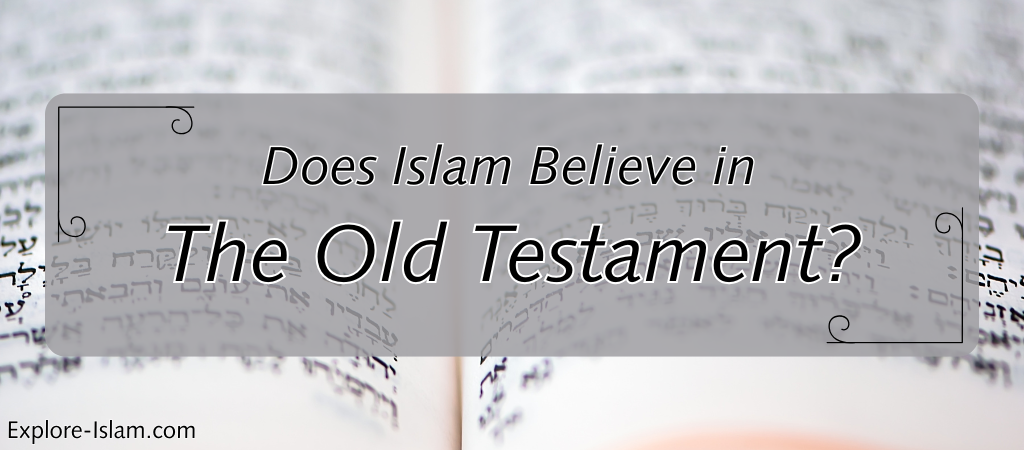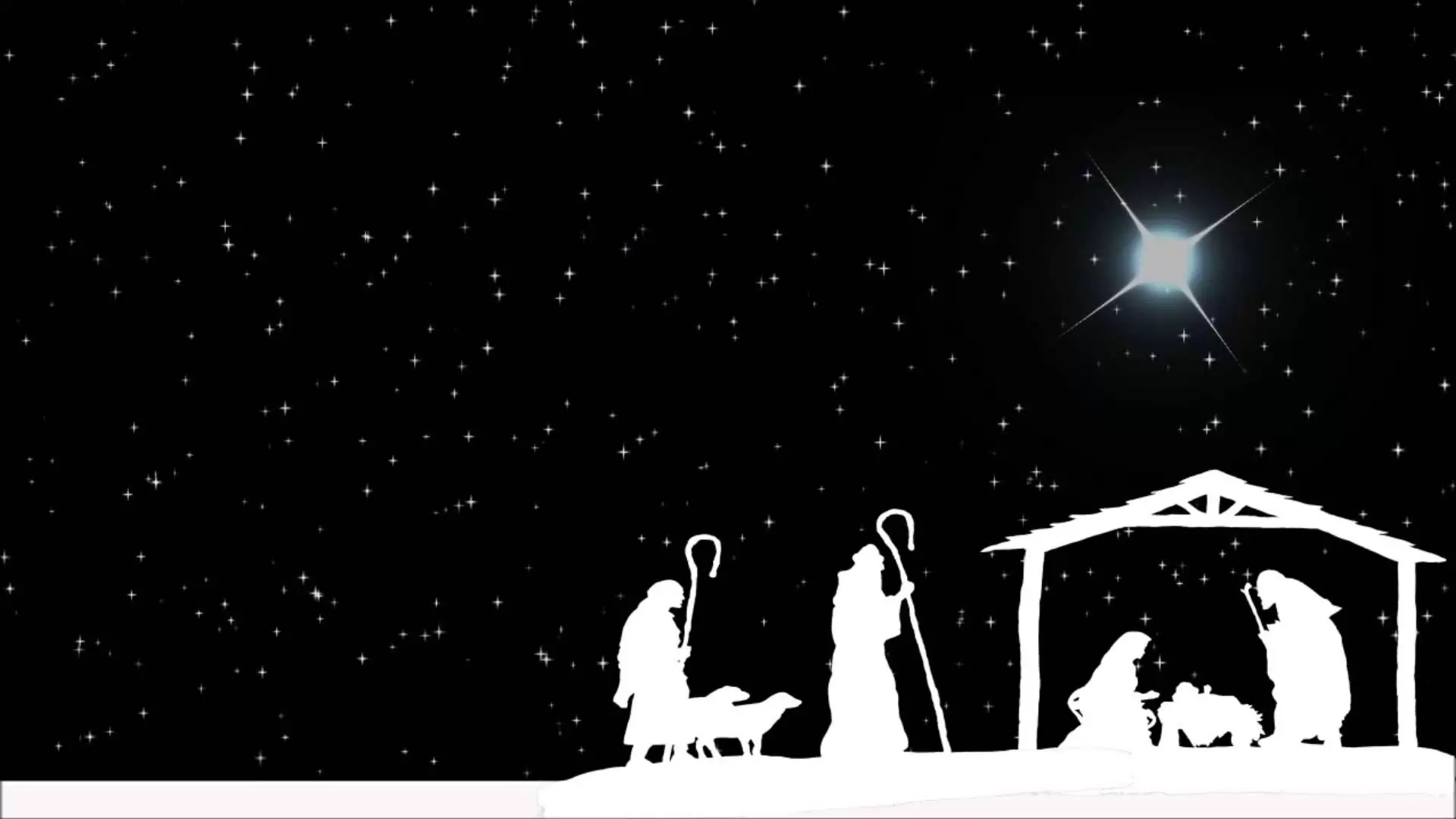Have you ever wondered, did Islam come from Christianity? Are conflicting sources leaving you uncertain about the truth?
Muslims believe in the Bible in its original form and regard Jesus (peace be upon him) as a revered Prophet of Almighty God. Did you know that Muslims uniquely uphold many of Jesus’ teachings as found in the Bible?
This article delves into the origins of Islam and its relationship with the Bible and Prophet Jesus (PBUH). It highlights shared beliefs and practices while addressing common misconceptions with clear refutations. Let this guide inspire sincere reflection and clarity on this profound question!
Did Islam Come from Christianity?
Islam did not derive from Christianity or any other religion, as this perspective assumes Islam to be a man-made faith. Instead, Islam represents the final divine message from the same God who previously revealed the Bible and the Torah. These earlier scriptures provided signs of a forthcoming prophet and religion. With the emergence of Islam, the authority of previous books was superseded. True followers of earlier revelations accepted Islam, recognizing that the descriptions of the awaited prophet aligned with Prophet Muhammad (PBUH).
Muslims believe in all the previous divine books and messengers sent by Almighty God, as stated in the Quran that Almighty God sends these books:
“He [Almighty God] has revealed this Book [the Quran] to you, … and earlier He revealed the Torah and Gospel.”
However, these earlier scriptures were altered and distorted over time. While believing in their original versions suitable for specific times, the authority has transitioned to the Quran—the final and unchanging message of God to humanity, preserved for eternity. Almighty God describes the relationship between the Quran and previous scriptures:
“We have revealed to you ˹O Prophet˺ this Book with the truth, as a confirmation of previous Scriptures and a supreme authority on them.”
By understanding this context, it becomes clear that Islam is not derived from any prior religion but is the continuation of the divine guidance sent to humanity.
Learn more about the real authorship of the Quran discussing different possibilities and refuting the false ones here: Who Is The Author Of The Quran?
Also, read the following article on the authenticity of the prophethood of Muhammad (PBUH): Was Muhammad A Prophet of God?
Who Created the Claim That Islam Borrowed from Christianity?
The claim that Islam is a “plagiarized religion” has been propagated by various Christian and atheist figures aiming to undermine the divine origin of Islam. Here are some key contributors to this fallacy:
1. John of Damascus:
A foundational figure, John of Damascus labeled Islam as a heretical offshoot of Christianity, describing it as “the people-deceiving cult of the Ishmaelites” in On Heresies, part of The Fount of Knowledge. He claimed Prophet Muhammad (PBUH) was influenced by a Christian monk, often identified as Bahira.
2. Thomas Aquinas:
During the Middle Ages, Aquinas critiqued Islam through a Christian lens, claiming it borrowed heavily from Christian teachings. While admitting his ignorance of Islamic theology, his work, Reasons for the Faith Against Muslim Objections, reiterated Church doctrines rather than engaging with Islamic positions.
3. Martin Luther:
The Protestant reformer Martin Luther characterized Islam as a syncretic religion, calling it a “patchwork” of Jewish, Christian, and pagan beliefs. His perspective is reflected in his work On the War Against the Turks.
4. European Orientalists:
figures like William Muir framed Islam as a derivative of Christianity and Judaism to align with colonial narratives of cultural and religious superiority.
These interpretations, shaped by theological bias and cultural prejudice, misrepresent Islam’s origins and unique theological framework. They have contributed to persistent misconceptions in interfaith dialogue and the broader understanding of Islamic teachings.
Read also: Who Wrote the Gospel of Matthew?
Did Prophet Muhammad (PBUH) Derive Islamic Teachings from Christian Monks?
John of Damascus categorized Islam as a heresy and linked it to Arianism, claiming that Prophet Muhammad (PBUH) formulated this “heresy” after encountering an Arian monk in Syria. To examine the validity of such claims, let’s explore two significant incidents where the Prophet met religious figures and analyze their implications.
A. Meeting with Bahira the Monk
Prophet Muhammad (PBUH) is said to have met Bahira during a trading journey to the Levant with his uncle, Abu Talib, when he was a young boy, decades before his prophethood. Bahira, recognizing the signs of prophethood, warned Abu Talib to return home to protect Muhammad from potential harm:
“Indeed, when you approached from Aqabah [a region], there was no tree or stone except that it prostrated, and they only prostrate to a prophet. And I recognized him by the seal of prophethood below the cartilage of his shoulder, resembling an apple. … He implored them not to take him to the Romans, for if the Romans saw him, they would recognize him by his description and would kill him.” (At-Tirmidhi: 3620)
Though this story is well-known among historians, some details are debated. Key points to consider:
- Bahira recognized the signs of the coming prophet based on his knowledge of original Scriptures. He acted as a warner, not a teacher or theologian.
- Bahira passed away long before Prophet Muhammad (PBUH) received the divine revelation.
- Over 20 years elapsed between this incident and the Prophet’s first revelation. If Bahira had influenced him, why would the Prophet wait so long before declaring his mission?
- A brief meeting such as this could not provide the extensive knowledge contained in the Quran.
B. Meeting with Waraqah ibn Nawfal
Another source attributed to the formulation of Islam is the Prophet’s meeting with Waraqah ibn Nawfal. Waraqah was a scholar of monotheistic religions and the cousin of Khadijah, the Prophet’s wife. After the first revelation, a distressed Prophet Muhammad (PBUH) consulted Waraqah, who recognized the divine nature of the event and offered his support:
“God’s messenger then informed him [Waraqah] about what he had seen, and Waraqah said, ‘It is the namus [revelation of scripture in the form of divine law] which God sent down to Moses. Would that I were a young man during your prophetic career! Would that I might be alive when your people expel you!’ God’s messenger asked, ‘Will they expel me?’ and he replied, ‘Yes; no man has ever brought anything like what you have brought without meeting hostility. If I see your day, I shall give you strong help.’ Waraqah died soon afterward.”
(Authentic: Agreed upon)
This meeting occurred after the Prophet received his first revelation, and Waraqah only validated the prophecy based on his knowledge of previous scriptures. He did not teach or influence the Prophet in any way. Furthermore:
- Waraqah passed away shortly after this encounter, with no further interaction.
- His role was one of acknowledgment and support, not instruction or authorship.
The claims that Prophet Muhammad (PBUH) borrowed teachings from Christian monks lack historical and logical basis. The Quran, rooted in eloquent Arabic, stands as a unique and divine revelation. Encounters with individuals like Bahira and Waraqah serve only to validate the Prophet’s mission, not to contribute to its content. These facts, supported by both Quranic and historical evidence, refute the misconception thoroughly.
Read:
Are There Aramaic Words in the Quran Proving Islam’s Derivation from Christianity?
One of the misconceptions often cited to suggest that Islam is derived from Christianity is the presence of Aramaic words in the Quran. Since Aramaic was historically the spoken language of Christians, some claim that this indicates a connection. However, the following facts debunk this theory and clarify the relationship between Arabic and Aramaic during the Quran’s revelation:
1. Arabic as the Oldest Semitic Language
Arabic holds the distinction of being the oldest and most developed Semitic language. Eqlimis Yousuf Dawood, a renowned Syriac scholar, emphasized this in his book The Longing Glitter of Syriac Language Grammar, stating:
“Arabic language, admittedly, is the noblest, oldest, and richest Semitic language. Learning Arabic is a must for those who want to learn other Semitic languages.”
Thus, Syriac language can’t be understood except by referring to the Arabic root due to its rich letters, derivations and points of articulation.
2. Aramaic’s Decline by the 6th Century CE
Contrary to claims made by individuals like Luxenberg, Aramaic was not widespread by the late sixth century CE. By then, Greek had replaced it in many regions, limiting its influence and use.
3. Rejection of Luxenberg’s Theory in Academic Fields
The theory suggesting that the Quran is based on the Aramaic language, as proposed by Luxenberg and others, is widely rejected in academic fields, including by non-Muslim specialists. For example:
- Dr. Daniel King, professor of Semitic studies, said that Luxengurg’s claims about the Quran origins is “dilettantism” and “a series of largely unconnected suggestions.”
- The linguist Francois de Blois described Luxenberg to be “innocent of any real understanding of the methodology of comparative semitic linguists.”
4. The Quran’s Clear Arabic Origin
The Quran itself emphasizes its Arabic origins, as mentioned in verse 26:195:
“In a clear Arabic tongue.” The Arabs living at the time of the Quran didn’t arouse the misconception of different liguistic origin. Rather, the allegation came from non-Arabs!
5. Lexical Borrowing: A Natural Linguistic Phenomenon
Lexical borrowing is a well-established linguistic process in which words from one language are adopted into another. Over time, Arabic integrated words from various languages into its lexicon. These words became part of the rich linguistic heritage of Arabic and were understood by its speakers.
This linguistic phenomenon found in the Quran and in the Arabic heritage even before Islam has nothing to do with the divine origin of the Quran revealed in a clear Arabic tongue.
These facts demonstrate that the Quran was revealed in Arabic, a language distinct from Aramaic, and that claims of linguistic derivation from Christianity lack credible historical and linguistic support.
For more about the misconception of Islam’s origins in Jerusalem, read: Did Islam Originate in Jerusalem? 7 Key Facts Dispelling Related Myths!
Did the Qur’an Borrow the Story of Prophet Abraham from Judeo-Christian Sources?
Some critics claim that the Qur’anic narrative of Prophet Abraham (PBUH) and the idols, as recounted in Surahs 6:74 and 21:51-71, was borrowed from the Midrash Genesis Rabbah. This argument, first made by Abraham Geiger and later repeated by Tisdall and other polemicists, lacks substantial evidence. Here’s why:
1. Unstable and Uncertain Text of Genesis Rabbah Providing Abraham’s Story
The authenticity of Genesis Rabbah is questionable due to its late and non-uniform manuscript tradition, with available texts emerging after the advent of Islam. Rudi Paret, a renowned scholar, highlights that Islamic stories of Abraham have influenced later Jewish traditions, further complicating claims of origin. Similar problems of uncertainty extend to the Bible itself. For more about this topic, refer to:
- Who Wrote The Gospels of Matthew, Mark, Luke, and John? The New Testament
- Who wrote the Bible?
- Who Wrote the Gospel of Matthew?
2. Conflicting Judeo-Christian Narratives about Abraham’s Story
Judeo-Christian sources themselves offer conflicting accounts of Abraham’s actions and fate. While the Qur’an presents Abraham challenging idol worship, destroying idols, and being miraculously saved from a fire, Jewish and Christian sources vary significantly on details like his punishment or escape, undermining the claim of a “strikingly similar” narrative.
3. Similarities in Stories Do Not Undermine the Qur’an’s Divinity
Muslims believe that while the current versions of the Bible are distorted, they still retain traces of the original divine truth. Similarities between the Qur’an and biblical stories—if considered authentic—reflect shared prophetic teachings rather than borrowing. These similarities affirm the divine origin of the Qur’an, which corrects inaccuracies, adds further details, and provides clarity.
Moreover, correct historical incidents can align with the core ideas found in Quranic stories, as the Almighty God, the All-Knowing, is the One who reveals this Book. Significantly, the Old Testament became accessible after the emergence of Islam, as understanding its Hebrew roots depended on the Arabic language. This challenges claims that some texts borrowed from the Qur’an and Islamic heritage, raising doubts about their original origins. Additionally, Jews adopted the Arabic diacritic system, which was developed by Muslim scholars, further underscoring the impact of Islamic contributions.
4. Qur’anic Narratives Elevate Prophets vs. Judeo-Christian Depictions
The Qur’an consistently presents Prophets as noble role models, providing moral and spiritual guidance for humanity. In contrast, many Judeo-Christian narratives portray Prophets in a negative light, undermining their integrity and divine mission.
For instance, the Bible depicts Noah (peace be upon him) as drinking wine, becoming intoxicated, and exposing himself, which leads to him cursing his son and grandson (Genesis 9:20–28). Similarly, Israel (Jacob, peace be upon him) is described as deceiving his father, Isaac, to steal his brother Esau’s blessing (Genesis 27:18–40) and even wrestling with God, nearly overpowering Him (Genesis 32:24–33). These portrayals contrast sharply with the Qur’an’s consistent elevation of Prophets’ character and teachings, affirming its divine integrity.
This analysis demonstrates that the claim of Qur’anic borrowing is not only unsubstantiated but also overlooks the Qur’an’s unique and profound portrayal of prophetic stories.
Thus, these misconceptions stem from theological biases and a lack of understanding of Islam’s divine origins. Refuting them highlights Islam’s authenticity and continuity as the final divine message to humanity.
Read also:
Why Do Islam and Christianity Share Common Teachings?
The similarities between Islam and Christianity do not indicate that Islam is branched from Christianity. Instead, these commonalities stem from their shared divine origin. Both religions were revealed by the same Almighty God, with the Quran serving as the final, unaltered revelation. While the Bible has undergone alterations over time, it still contains traces of its original divine message, which align with the core teachings of Islam. For instance, consider the following parallels:
1. Monotheism as a Core Message in Quran and Bible:
Jesus emphasized the worship of one God:
“The most important one (commandment) is this: Listen, O Israel! The Lord our God is the one and only Lord.”
(Mark 12:29)
He also said:
“They know you, the only true God, and Jesus Christ, whom you have sent.”(John 17:3)
This aligns with the central Islamic tenet of worshiping Allah alone, a message shared by all prophets.
2. Prayer and Prostration of all Prophets:
Jesus prayed by prostrating, as noted in the Bible:
“And they fell on their faces and said, ‘O God, the God of the spirits of all flesh…’”(Joshua 5:14).
This prayer is the same one done by all Prophets (PBUT). Muslims are the only religion followers who continue this prophetic tradition in their daily prayers.
3. Greeting with Peace by Jesus and Muslims:
Jesus instructed his followers to greet others with peace:
“When you enter a house, first say, ‘Peace to this house.’”(Luke 10:5).
This tradition is mirrored in the Islamic greeting, “As-salamu Alaikum” (Peace be upon you).
These similarities confirm Islam as the continuation of God’s divine message rather than a derivation of Christianity. Islam is the final, preserved revelation that matches the core teachings of all previous Prophets, including Jesus (PBUH).
Read also: The Spread Of Islam: 10 Reasons For The Spread Of Islam
Conclusion: Is Islam Derived From Christianity?
In conclusion, the question, “Did Islam come from Christianity?” often arises from misunderstandings and misrepresentations of Islam’s origins. Islam is not derived from Christianity but is a divine revelation from the same One God who sent previous Scriptures for humanity’s guidance. Islam represents the final and eternal message, preserving the essence of all earlier revelations.
The Quran, as the final and eternal message, serves not only as a confirmation of past revelations but also as a correction of what is distorted and a clarification of earlier scriptures, adding truths that were previously unknown. It preserves the essence of all prior divine messages while providing a comprehensive one suitable for all generations till the end of the world.
Want to deepen your understanding of Islam? Subscribe to the Explore Islam Newsletter for more enlightening insights!
Also, start a conversation with our team now for more discussions and to find answers for your related questions!
References:









